The world needs less white saviours and more equitable resource distribution. So thinks Tasneem Chopra, a prominent curator, consultant, writer and activist whose passion n for addressing social justice issues has embraced many platforms.
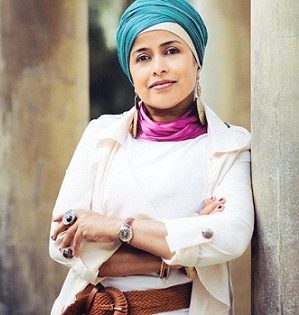
Khayala Mammadova*
Ulviyya Sanili Aydin*
An independent cross cultural consultant, she delivers acclaimed workshops on diversity, identity and racism to varied audiences from Supreme Court judges to nursery teachers.
Tasneem Chopra’s personal and professional experiences inform her broader outlook on our social landscape, where she advocates for social change and justice, particularly as these issues impact upon the disadvantaged and minorities.
What is your model for success and what does it mean to be a cross-cultural consultant?
To accept my limitations while not underestimating my potential. Finding the balance and having confidence, but not over confidence in myself. Maturity has definitely helped refine this skill. I’m still learning.
How did you get interested in cultural issues?
It was in my DNA. I was born in Kenya, have Indian heritage and was raised in Australia.
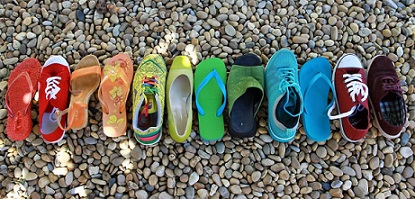 And what does cross-culture mean in practice?
And what does cross-culture mean in practice?
To be conscious and inclusive of the culturally diverse components of the world I inhabit – people, places, beliefs and traditions. Practically, this calls upon recognising all our diverse assets and optimising them.
In what ways have you integrated cross-cultural, multicultural issues as part of your professional development?
I speak of my lived experience of inhabiting a culture faith and background that is a minority in the country I live in – and speak to the challenges and joys this brings. I ensure a ‘diversity lens’ is a skill set applied by my clients as they plan and map ways to improve their workforce and client relationships
In a pluralistic culture such as ours, can we also define secularism, humanism, materialism, and so on, as faiths?
Belief faith systems are ultimately, personal, and as such should not be beholden to others to judge.
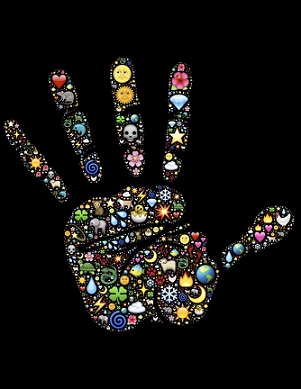 What is your family background?
What is your family background?
Fourth generation East African born, of north Indian heritage (Gujarat).
Do human rights and democracy promote values to which the Arab-African world must conform?
These are values all nations and communities should, but fail to uphold, including some of the most so-called progressive Western nations on earth.
Just in a general sense, what does it mean to be female in a society?
To have our capacity and potential largely prescribed by patriarchal systems that govern us.
What role have women played in developing the spiritual tradition and cultural heritage?
Stalwarts. The have raised children and communities whilst too many men have razed the same.
What are the negative effects of cross-culture in the countries you visit?
The cultural arrogance of one group that supposes it is superior to another and therefore creates racist structures and policies to enshrine the differences.
What have you learned from working with diverse populations?
That I too have implicit biases I need to unlearn.
How do you view the tendency for identities to become defensive and tense in response to runaway globalisation?
This fear is tied to power, greed and the inability to share resources. I like to quote the saying ‘when you have more food than you can eat, do not build a higher fence – build a longer table’.
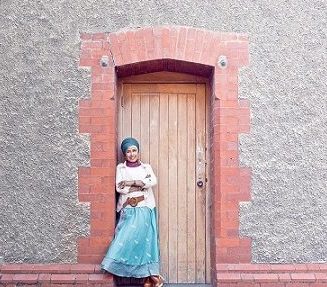 What are your current research interests?
What are your current research interests?
Intersectional discrimination, feminism, gender in leadership, Islamophobia, combatting racism in media and politics.
What inspires you to write?
Rage against systems of inequality and racism.
What work are you currently doing in the community?
Cultural competence training. And board roles on committees addressing violence against women and children, sexual harassment in the workplace, Muslim women’s welfare issues and engaging diversity in the arts.
What challenges are you looking for currently?
To grow my thinking and seek new solutions to prolonged injustices
What’s the best thing about working in cross-culture?
The enthusiasm I encounter with clients embracing differences and having their perceptions challenged. I am also always in awe of young trailblazing leaders who fearlessly speak their mind.
 What motivates you to do your best?
What motivates you to do your best?
My children, in the hope that my generation doesn’t destroy their world.
As everybody knows, interreligious dialogue and multiculturalism has failed in a number of countries around the world. Azerbaijan’s tradition of tolerance and interfaith dialogue is ‘home grown’ and a long-time feature of the country’s culture. The tolerance and inter-religious dialogue has historical roots that predate Azerbaijan’s statehood traditions. The ‘Mother of all Churches in the South Caucasus’, located in northern Azerbaijan, is sacred to Azerbaijani Christians but also highly regarded by the country’s Muslims. Azerbaijan policy towards religions is to ‘do no harm’ and to treat all faiths equally while maintaining the state’s distance from any one particular religion. Azerbaijan President Ilham Aliyev declared 2016 a ‘Year of multiculturalism’ in Azerbaijan to maintain, further develop and popularise the traditions of multiculturalism. President of the Republic of Azerbaijan Ilham Aliyev has declared 2017 the ‘Year of Islamic Solidarity’ in the country. Azerbaijan’s approach to religion is more relevant and more successful than a secularist model that lacks religious dialogue and tolerance. Islamic solidarity is a natural extension of the multicultural environment in Azerbaijan.
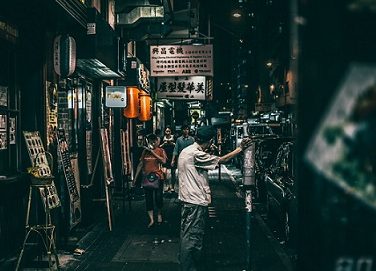 Do you have further views and suggestions about this issue?
Do you have further views and suggestions about this issue?
No. I believe the people of Azerbaijan are the most qualified to speak about what is best for them.
Do you have any final words which you would like to mention on the theme of cross-culture?
Real and meaningful change in people’s lives is best achieved when they are afforded the resources to be agents of change themselves. The world needs less white saviours and more equitable resource distribution.
*Khayala Mammadova is Head of International Multicultural Network
*Ulviyya Sanili Aydin is project Manager PF IMN Turkey Representative International Multicultural Network
(Fotos: Pixabay)












.jpg)












